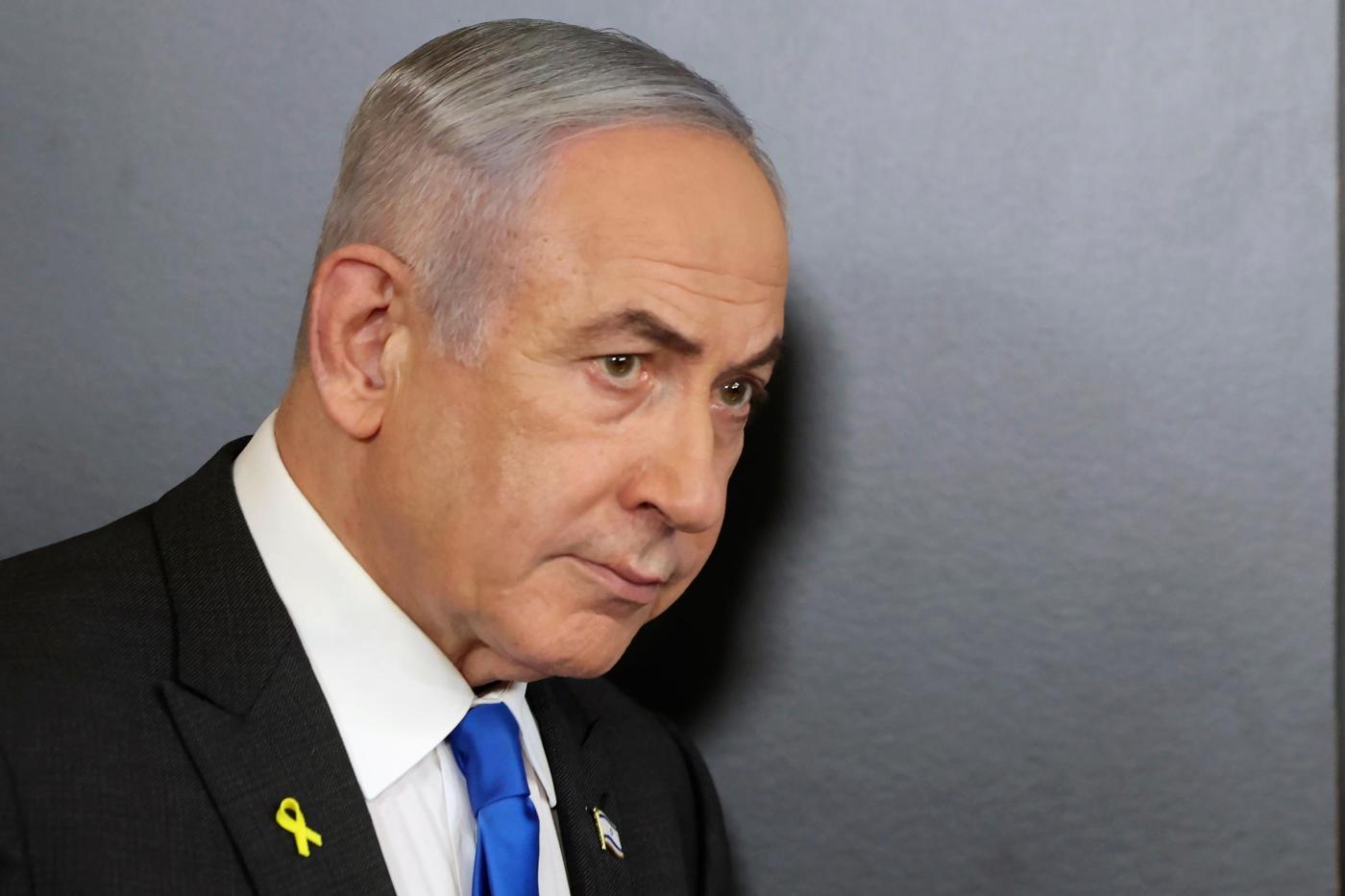
Trudy Rubin: Keeping the Philadelphi Corridor will endanger Israel’s security and doom the remaining hostages
Imagine if you were the parent or child of one of the Israeli hostages still held by Hamas terrorists in Gaza, and you knew your loved ones were being abandoned by your own government for political reasons.
That is effectively what is happening as Israeli Prime Minister Benjamin Netanyahu insists on changing the terms of a U.S.-backed cease-fire-for-hostage deal in a way that is guaranteed to kill it.
The primary sticking point revolves around a narrow strip of sandy land — known as the Philadelphi Corridor– which is nine miles long, around 100 yards wide, and runs along the border between Gaza and Egypt.
Netanyahu appeared to agree initially, in May, to pull Israeli troops back from the Philadelphi strip at the start of a three-stage deal that would include the release of dozens of hostages. But now he insists that keeping Israeli forces on the corridor indefinitely is the key to victory over Hamas and the release of further hostages.
Yet, Israel’s top military and intelligence officials, its defense establishment, as well as U.S. negotiators, all challenge Netanyahu’s inflated claims about Philadelphi, and his reasons for making them. So do U.S., Egyptian, and Qatari negotiators, and even members of Israel’s own team of negotiators.
They all believe the prime minister rejects any deal not out of security concerns but because his right-wing ministers would quit the government, and he’d lose power.
“To make sure that there will be no hostage deal that will collapse your coalition, you turned Philadelphi into the rock of our existence,” charged Nadav Argaman, who headed the Shin Bet, Israel’s domestic security agency, from 2016 to 2021, in a speech last week. “No, it is not!” he said.
Argaman and many other top security experts challenge Netanyahu’s claim that Israel must keep forces along the corridor to prevent Hamas from smuggling arms from Egypt into Gaza via underground tunnels. They say this distorts history.
After Israel withdrew from Gaza in 2005, most of the Hamas arms smuggling from Egypt was done over land, via the Rafah border crossing, not via tunnels. During much of that time, Netanyahu was prime minister, with a policy of letting goods and cash flow into Gaza as a way (he thought) of buying Hamas off.
Moreover, once the military government of Abdel Fattah el-Sisi took power in 2014, it began cracking down on border smuggling to Gaza as a threat to its own power. Now it is willing to do far more because it wants to see Hamas destroyed permanently.
All of the 10 or so onetime major tunnels that led from Egypt (and were connected to innumerable smaller tunnels inside Gaza) are blocked now, Israeli experts told me. That certainly doesn’t mean there won’t be a need to secure the Gaza-Egypt border in the future. But the United States has been working with Egypt for months, in consultation with Israeli officials, on devising sophisticated technological solutions.
“We think we can fully account for Israel’s security needs on that corridor in ways that will be unprecedented and that does not require some alternative security force,” a senior administration official told journalists Wednesday.
Think sensors, deep underground iron walls, drones, and much more.
Yet, there are even deeper strategic reasons why Netanyahu’s stress on Philadelphi is so misleading — and so dangerous.
“Not getting into this deal is more of a threat to Israel’s long-term security than actually concluding the deal, and that includes the issue of the Philadelphi Corridor,” a senior administration official told Israel media this week.
Why so? If there is no cease-fire, and Israeli military outposts remain perched on this narrow stretch of road, they would be sitting ducks for above-ground attack, as they were when Israel occupied that corridor before 2005 and suffered dozens of casualties.
“It is impossible from a military point of view to hold that narrow corridor,” I was told by phone from Israel by Ami Ayalon, a former head of the Shin Bet from 1995 to 2000.
“To keep the corridor would mean we have to reoccupy all of Gaza. And we know what happened when we stayed on in Lebanon,” he said. (What happened was that Israel pulled out after 18 years of fighting a Hezbollah insurgency.)
Staying on as an occupying power, Ayalon noted, would enmesh the military in another endless insurgency. Occupation would mean controlling 2 million dispossessed Gazans living in ruins, which would inevitably foster a new insurgency. Without hope for a better alternative future, young Gazans will have nothing to lose.
That’s why Israeli military commanders understand that they have reached the limits of what can be achieved by military power, Ayalon said. They believe they have destroyed Hamas’ infrastructure and leadership and its ability to function as an organization, even if individual terrorists remain.
Now is the time for a political deal, backed by the United States and moderate Arab nations, that stabilizes Gaza and brings in Persian Gulf and international funds to bring in humanitarian aid and rebuild.
A hostage/cease-fire deal would be a start; if the first phase led to an impasse, the military insists it could reverse any pullback before moving on to a second phase. Once Netanyahu said yes, the pressure on Hamas to accept the deal would be global and massive.
Instead of getting to yes, however, Netanyahu repeatedly instructs his negotiators to bargain, then publicly contradicts them by refusing any compromise on Philadelphi.
If the Israeli leader kills all hope for a hostage/cease-fire deal, there is no other political prospect for ending the fighting in Gaza.
“After 11 months, the military understands that the lack of a political goal for the war becomes a military issue,” Ayalon said. “You send your military to achieve a better political goal, to bring the enemy to a position where he will accept your goals, not to kill all your enemies. But if there is no political definition (of an endgame), that means the war becomes the end, not the means. That opens the gate to endless war.”
Endless war in Gaza will further endanger Israel. It will put at risk the existing peace treaties with Jordan and Egypt (keeping troops on Philadelphi violates an Israeli-Egyptian peace treaty). It will fuel the escalating war with Hezbollah and tempt Iran to further destabilize the region.
“Arab peace partners will be forced to distance themselves,” predicted Nimrod Novik, a member of the executive committee of Commanders for Israel’s Security with longtime close contacts with Egyptian, Saudi, and Jordanian security circles. “Normalization with Saudi Arabia will be sent to the file of lost opportunities. We’re going to see the West Bank sliding in the direction of Gaza.”
“I’ve never been more worried about the trajectory of Israel,” he told me.
And contrary to Netanyahu’s claims, the failure of the hostage/cease-fire deal will ensure that most, if not all, of the remaining hostages die.
This is why the demonstrations by hostage families and supporters are so frenzied, so emotional, so desperate. They know their loved ones are being sacrificed, not for Israel’s security needs, but for the political needs of their prime minister.
This name Philadelphi, meaning “brotherly love,” was probably meant as a joke when it was bestowed by Israeli soldiers on this accursed sand spit in 2006 as they withdrew from Gaza. Given Netanyahu’s misuse of the corridor for his own interests, it should be renamed Philadelphi-lies.
Trudy Rubin is a columnist and editorial-board member for The Philadelphia Inquirer, P.O. Box 8263, Philadelphia, Pa. 19101. Her email address is trubin@phillynews.com.
Related Articles
Thomas Friedman: The 23 words Harris needs to say to win
Mark Gongloff: Texas is the new Arizona, and not in a good way
Erwin Chemerinsky: We’re living under a flawed Constitution. Let’s start fresh and rewrite it
Tyler Cowen: AI culture will be weirder than we can yet imagine
Ryan Young: Harris’s price controls won’t tame inflation


